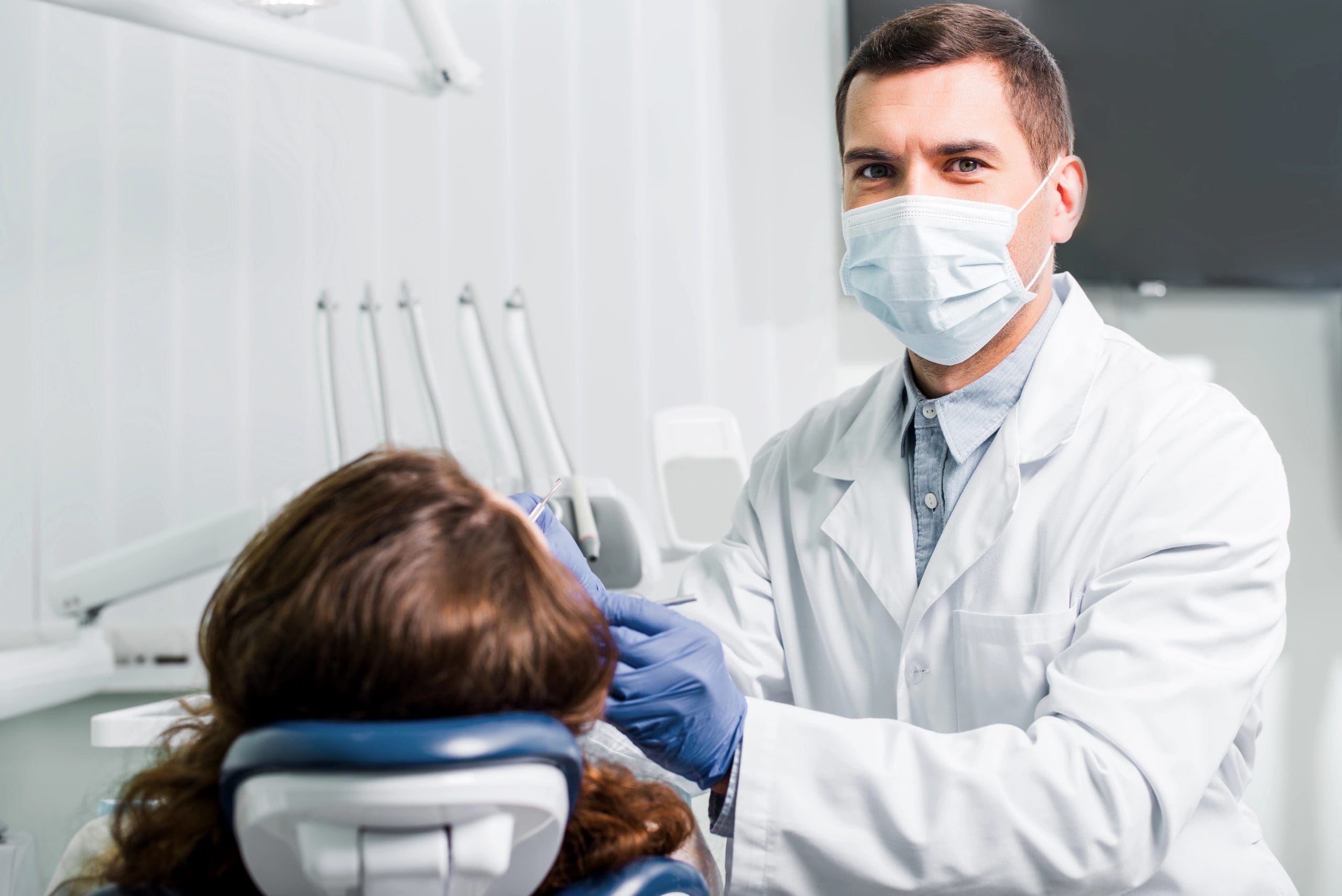What is considered a dental emergency? Understanding the key indicators of a dental emergency can help you determine when immediate attention is necessary. Generally, severe pain, bleeding, or trauma to the mouth are clear signs that you may be experiencing a dental emergency.
Dental Emergency: Severe Toothache
A severe toothache is often a clear indicator of a dental emergency. When the pain in your tooth becomes unbearable, it can be a sign of a serious underlying issue such as an infection, abscess, or significant decay. Ignoring this type of pain can lead to more severe complications, making it crucial to recognize it as a dental emergency.
In many cases, a severe toothache can disrupt daily activities and affect overall well-being. The intensity and persistence of the pain often necessitate immediate attention to prevent further damage. For more information on how such situations are handled, you can read our detailed guide on Emergency Dental Procedures: Overview.
Broken or Chipped Tooth
A broken or chipped tooth is a common dental emergency that can occur from various incidents such as biting down on something hard, experiencing a fall, or sustaining a blow to the face. When a tooth breaks or chips, it can cause significant pain and sensitivity, especially if the inner layers of the tooth are exposed. This type of dental emergency requires prompt attention to prevent further damage and alleviate discomfort.
Ignoring a broken or chipped tooth can lead to more severe complications, including infection or even tooth loss. It’s crucial to recognize this as a dental emergency and seek immediate care. For those in need of urgent dental assistance, our Emergency Dental Clinic Bozeman is equipped to handle such situations efficiently.
Knocked-Out Tooth
A knocked-out tooth is a clear indicator of a dental emergency that requires immediate attention. When a tooth is completely dislodged from its socket, it can lead to severe pain, bleeding, and potential long-term damage if not addressed promptly. Recognizing this situation as a dental emergency is crucial for preserving oral health and preventing further complications.
Lost Dental Filling
A lost dental filling can be a significant dental emergency that requires prompt attention. When a filling falls out, it leaves the affected tooth vulnerable to further decay and damage, which can lead to more severe dental issues if not addressed quickly. The exposed area may also cause discomfort or sensitivity to hot and cold temperatures. If you experience a lost dental filling, it’s important to seek professional help to prevent complications. For more information, visit Stone Dental Lodge, your trusted Bozeman Dentist.
Abscessed Tooth
An abscessed tooth is a serious dental emergency that requires immediate attention. This condition occurs when a pocket of pus forms due to a bacterial infection, leading to severe pain, swelling, and sometimes fever. If left untreated, an abscessed tooth can cause the infection to spread to other parts of the body, posing significant health risks. Recognizing the symptoms of an abscessed tooth early on is crucial in addressing this dental emergency promptly.
Swollen or Bleeding Gums
Swollen or bleeding gums can be a significant indicator of a dental emergency. While occasional gum irritation might not be alarming, persistent swelling or bleeding could signal underlying issues such as gum disease, infection, or even an abscess. Ignoring these symptoms can lead to more severe complications, including tooth loss and systemic health problems. If you experience swollen or bleeding gums that do not improve with regular oral hygiene practices, it is crucial to seek immediate dental care to address the potential dental emergency and prevent further damage.
Jaw Pain or Injury
Experiencing jaw pain or sustaining an injury to the jaw can be a significant dental emergency that requires immediate attention. Jaw pain might indicate a variety of serious conditions, such as a fractured jaw, dislocated jaw, or even an underlying infection. Ignoring these symptoms can lead to complications, including difficulty in chewing, speaking, and even breathing. If you encounter sudden or severe jaw pain, or if you’ve had an accident that impacts your jaw, it’s crucial to seek prompt dental care to prevent further damage and ensure proper treatment.
Loose or Dislodged Crown
A loose or dislodged crown is a common dental emergency that requires prompt attention. Crowns are designed to protect and strengthen damaged teeth, but when they become loose or fall out, the underlying tooth is left vulnerable to further damage and infection. If you experience a loose or dislodged crown, it’s crucial to contact your dentist immediately to prevent complications. In the meantime, try to keep the crown safe and avoid chewing on the affected side of your mouth. Addressing this dental emergency quickly can help preserve your tooth and maintain your oral health.
Persistent Bad Breath
Persistent bad breath, also known as halitosis, can sometimes be more than just a social inconvenience; it can be a sign of a dental emergency. If you notice that your bad breath doesn’t improve with regular brushing, flossing, and mouthwash, it could indicate underlying issues such as gum disease, tooth decay, or even an abscess. These conditions require immediate attention from a dental professional to prevent further complications. Ignoring persistent bad breath can lead to more severe health problems, making it crucial to recognize this symptom as a potential dental emergency.
Conclusion
If you suspect a dental emergency, call 615-542-5123 or check out our Google Maps reviews.

